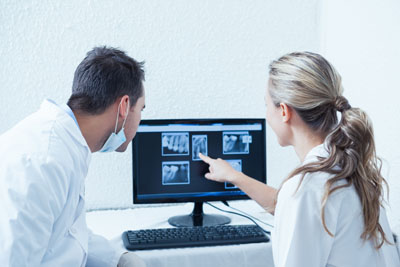How Common is Depression?

Affecting people of all ages and in a variety of ways, depression is more common than most people realize. If you suffer from this mental health issue, you probably struggle with many daily activities such as eating, sleeping, working and enjoying life overall. It is important to understand that you are not alone and that treatment is available by visiting a psychiatrist.
Symptoms of depression
depression manifests in so many different ways that some people suffer from it without even knowing. Fortunately, doctors have remedies that help. However, seeking medical care starts by learning about the signs and symptoms.
For insight into the symptoms associated with depression, keep reading.
- Crying for unexpected reasons
- Major changes in sleep and eating patterns
- Anxiety, anger, irritability and worry
- Long periods of sadness
- Loss of energy
- Problem concentrating
- Feeling worthless and guilty
- Unexplained body aches and pains
- No longer finding pleasure in hobbies or interests
- Thoughts of suicide or death
Not only is depression common, but there are also different types. For a lot of people, depression starts after losing a loved one, going through a divorce, being terminated from a job or having some other traumatic experience. However, there are other triggers such as substance abuse, as well as eating and anxiety disorders.
Children and teens
While parents do everything they can to help guide their children through the turbulent childhood years, depression still occurs. With this type, kids sleep long hours, stay isolated from family and friends, develop aches and pains for no apparent reason and even experience behavioral or speech problems. According to Science Daily, one out of every 20 children and teens struggle with either anxiety or depression.
Aging adults
Depression is also common among the aging population with the Centers for Disease Control and Prevention (CDC) citing that the percent affected varies depending on the situation. For instance, depression only affects between 1 and 5 percent of elderly people who still live independently. However, the percentage jumps to 13.5 percent for those who need in-home health care. As for hospitalized patients, it drops slightly to 11.5 percent.
Keep in mind that feeling sad after moving to an assisted living facility or nursing home, suffering from an illness or experiencing the death of a loved one does not automatically equate to depression. It is when those feelings linger and diminish the enjoyment of life that they turn into a concerning problem.
Seeking treatment
There are times when depression becomes serious, even life-threatening. If you or someone you care about shows the telltale signs of this mental health problem, it is essential to seek immediate help. Whether you start with your family physician or schedule an appointment with a psychiatrist, you should never wait to take action.
Depression on any level is not something to take lightly. If you begin to struggle or you have a loved one who does, make sure to reach out to a doctor who can help. For immediate situations, there are 24/7 hotlines available.
Request an appointment here: https://futurepsychsolutions.com or call Future Psych Solutions at (803) 335-5232 for an appointment in our Columbia office.
Check out what others are saying about our services on Yelp: Read our Yelp reviews.
Recent Posts
Counseling is a form of psychiatry treatment that focuses on one specific problem. This type of treatment can be extremely helpful to someone experiencing a behavioral, mental or emotional problem such as anxiety, depression or even addiction. Psychiatric counseling is done in a safe and controlled setting that allows patients to feel that they can be…
Although often overlooked, mental health is just as important as physical health. Whether you have a mental disorder or are going through a difficult time due to external factors, a psychiatrist can provide professional help. You can also follow several self-care tips outside of treatment to help make your mental health journey easier.Self-care is crucial…
Suboxone treatment has helped many who struggle with an opioid addiction find relief and live a higher quality life overall. Suboxone treatment, combined with other forms of treatment, is often very effective. Still, it is essential to know about the drawbacks of any potential treatment, including possible side effects.At Future Psych Solutions, patients can receive…
Curious about what can help your ADHD treatment work better? Read on to learn more. ADHD is a common neurodevelopmental disorder that affects millions of people worldwide. ADHD treatment options include medication and therapy. However, positive lifestyle changes can also significantly improve the symptoms and quality of life. This article covers different lifestyle changes that…


